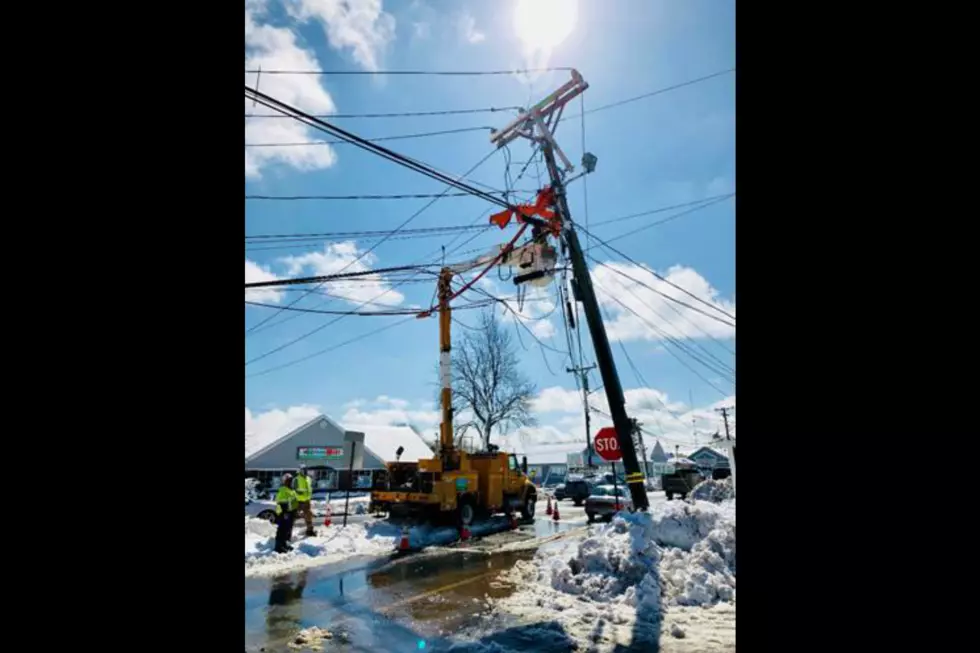
An Open Letter to SouthCoast Highway Departments About Trees Blocking Roads
I woke up early, realized the big storm knocked out our power, and got an early start to work. My normal route was blocked by a massive tree across the road, so I backtracked and took a secondary route. It wasn't long before I was impeded by more downed trees. I tried the third and final option out of my neighborhood and couldn't pass due to downed wires and multiple downed trees. There was no way to get in or out of my neighborhood.
Most of the SouthCoast was tucked away in our warm beds while you and your crews were out risking your lives.
Thanks to some amazing new technology Fun 107 invested in during the pandemic, I was able to directly connect to the studio and go on the air from my car. So there I sat, watching the town's highway department slowly chip away at the massive trees that were blocking my secondary route. It took them about half an hour using chainsaws and a bulldozer, but they finally got it done.
The fact of the matter is that all of you highway department workers were out in the pouring rain and dangerously powerful winds overnight last night. Most of the SouthCoast was tucked away in our warm beds while you and your crews were out risking your lives.
When I say "risking your lives," that is no overstatement. Trees were falling left and right, power lines draped and sagging all around you. You realized the urgency of opening at least one of those roads right away. The road needed to be opened, not so a bozo like me can get to a radio studio, but so emergency crews can reach the residents if needed.

Thank you for doing that. I want you to know that we all appreciate all of that hard, uncomfortable work. Whether you work for the cities of New Bedford or Fall River, or the towns of Marion or Dighton or anywhere else on the SouthCoast, we hope your day ends with a piping hot bowl of soup and your favorite pair of sweatpants.
TIPS: Here's how you can prepare for power outages
LOOK: The most expensive weather and climate disasters in recent decades
More From WFHN-FM/FUN 107






![Trees Are Literally Trying To Kill B Mo [PHOTOS]](http://townsquare.media/site/519/files/2018/03/IMG_5925-e1521051590443.jpg?w=980&q=75)


